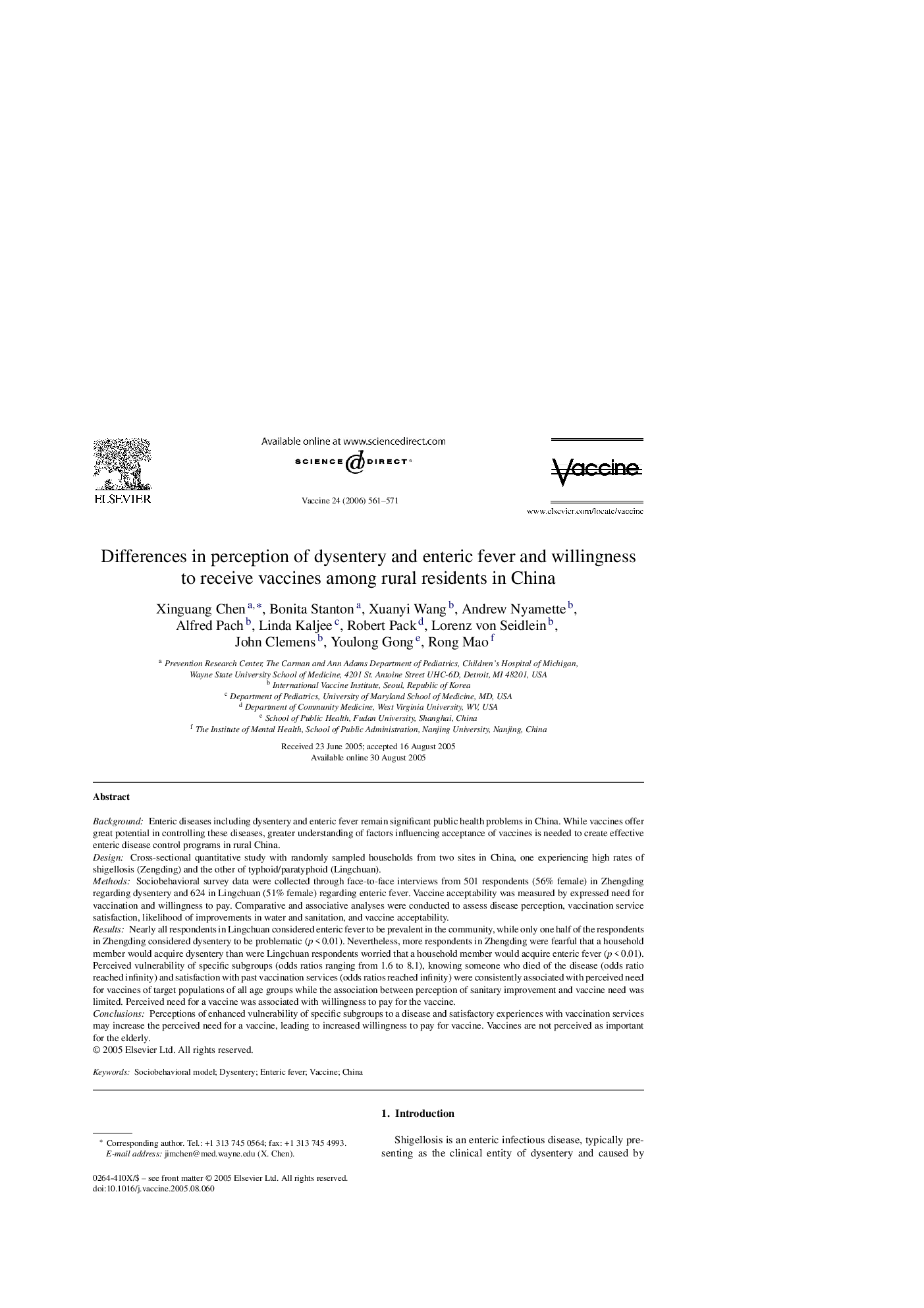| Article ID | Journal | Published Year | Pages | File Type |
|---|---|---|---|---|
| 2409967 | Vaccine | 2006 | 11 Pages |
BackgroundEnteric diseases including dysentery and enteric fever remain significant public health problems in China. While vaccines offer great potential in controlling these diseases, greater understanding of factors influencing acceptance of vaccines is needed to create effective enteric disease control programs in rural China.DesignCross-sectional quantitative study with randomly sampled households from two sites in China, one experiencing high rates of shigellosis (Zengding) and the other of typhoid/paratyphoid (Lingchuan).MethodsSociobehavioral survey data were collected through face-to-face interviews from 501 respondents (56% female) in Zhengding regarding dysentery and 624 in Lingchuan (51% female) regarding enteric fever. Vaccine acceptability was measured by expressed need for vaccination and willingness to pay. Comparative and associative analyses were conducted to assess disease perception, vaccination service satisfaction, likelihood of improvements in water and sanitation, and vaccine acceptability.ResultsNearly all respondents in Lingchuan considered enteric fever to be prevalent in the community, while only one half of the respondents in Zhengding considered dysentery to be problematic (p < 0.01). Nevertheless, more respondents in Zhengding were fearful that a household member would acquire dysentery than were Lingchuan respondents worried that a household member would acquire enteric fever (p < 0.01). Perceived vulnerability of specific subgroups (odds ratios ranging from 1.6 to 8.1), knowing someone who died of the disease (odds ratio reached infinity) and satisfaction with past vaccination services (odds ratios reached infinity) were consistently associated with perceived need for vaccines of target populations of all age groups while the association between perception of sanitary improvement and vaccine need was limited. Perceived need for a vaccine was associated with willingness to pay for the vaccine.ConclusionsPerceptions of enhanced vulnerability of specific subgroups to a disease and satisfactory experiences with vaccination services may increase the perceived need for a vaccine, leading to increased willingness to pay for vaccine. Vaccines are not perceived as important for the elderly.
